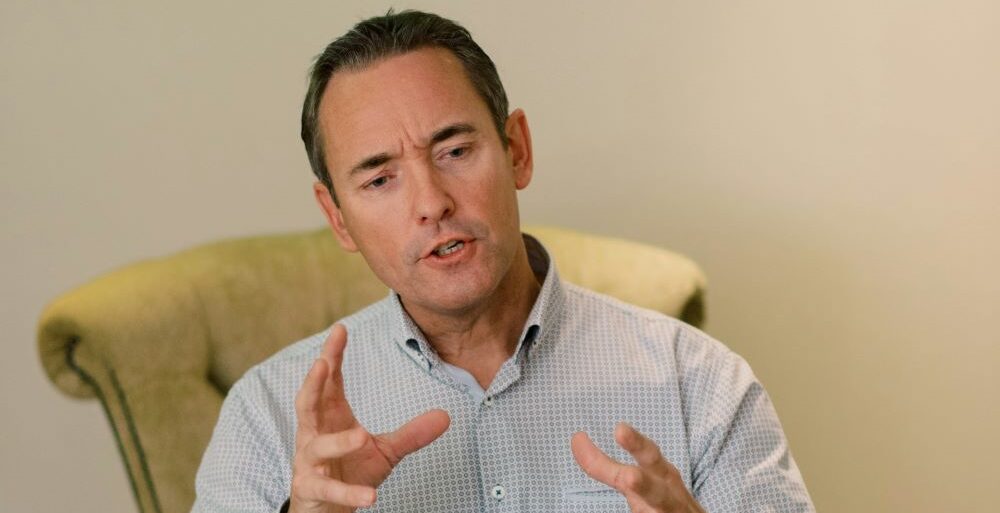Psychotherapy is an addiction treatment that looks at your negative emotions and behaviours, and tries to build a more positive way of thinking and acting.
Alcohol and drug addiction treatment is most efficient when it includes psychotherapy for addiction.
Those with substance use disorders that are moderate to severe will benefit most from psychotherapy for addiction.
Psychotherapy for addiction treatment will allow you to unravel the underlying causes and triggers of your addiction.
Usually psychotherapy for addiction is an individual therapy that you’ll undergo one-to-one with your therapist.
Psychotherapy for addiction can allow you to heal from your past and regain the best quality of life.
Your treatment plan during recovery can be tailored no matter which addiction you’re struggling with.

This includes:
- Physical addictions – alcohol addiction
- Behavioural addictions – cannabis addiction, gambling, sex and love
The psychological aspect of addiction treatment provides a comprehensive framework for change within a safe environment. It’s essential in order for psychological healing to occur and for abstinence to be achieved.
Psychotherapy can also treat mental health conditions, such as:
- Post-traumatic stress disorder
- Depression
- Anxiety
- Anxiety
- Schizophrenia
Mental health issues and addiction are often interlinked, so treating them together allows you to get to the root cause of the problem.
This will give you the best chance of a successful recovery, and a lower risk of relapse so you can break the cycle of addiction for good.
At OK Rehab, we offer free advice as well as referrals to top rehabs across the UK. Many of us are in recovery and understand what you’re facing.
To find out more about psychotherapy for addiction, reach out to our 24/7, confidential hotline on 0800 326 5559.
What is psychotherapy?
Psychotherapy is a talking therapy that aims to treat a person from a psychological perspective. As a talking therapy, the premise of treatment is based on talking to a trained psychotherapist about the problems a person is facing.
This type of treatment provides a space to explore thoughts and emotions. It usually involves discussing emotional and deep-rooted issues.
Psychotherapy also recognises how uncomfortable events and traumatic experiences have long-lasting effects. What happens in the past can have a major impact on a person’s present life.
When events in a person’s past manifest in negative outcomes in the present, therapy can support people towards healing.
Psychotherapy treats various problems such as:
- Addiction
- PTSD
- Eating disorders
- Mental health problems
- Feelings around bereavement
- Dealing with health conditions
Research shows that for half the people in psychotherapeutic treatment, there is “significant improvement by the eighth session” or by the twenty-sixth session for those with severe conditions.[1]
What kind of addictions can psychotherapy treat?

Psychotherapy can treat:
- Alcohol use disorder
- Heroin addiction
- Cannabis addiction
- Porn addiction
- Sex and love addiction
There are many more addictions this type of addiction can help to treat.
What are other types of therapy?
- Family therapy (family counselling)
- Motivational enhancement therapy
- Behavioural therapies
At OK Rehab, we offer free advice as well as referrals to top rehabs across the UK. Many of us are in recovery and understand what you’re facing.
To find out more about psychotherapy for addiction, reach out to our 24/7, confidential hotline on 0800 326 5559.
Is psychotherapy included in all rehabilitation programmes?
The most efficient addiction rehabilitation programmes include psychotherapy. In order for healing and recovery to take place, the psychological aspects of addiction need to be treated.
Psychotherapy is offered at private rehabilitation clinics throughout the UK. A person’s individual needs will determine the type of psychotherapy they receive. There are a variety of options available at private clinics provided by highly experienced psychotherapists.
At OK Rehab, we offer free advice as well as referrals to top rehabs across the UK. Many of us are in recovery and understand what you’re facing.
To find out more about psychotherapy for addiction, reach out to our 24/7, confidential hotline on 0800 326 5559.
What makes psychotherapy for addiction treatment effective?

In order to truly recover from an addiction, psychotherapy is essential. Addiction isn’t just about the physical symptoms of using drugs and alcohol. Addiction is a complex disease. Treatment requires a comprehensive approach to cover all areas of the condition.
Psychotherapy treatment for addiction enables psychological recovery by doing the following:
- Providing a safe space to identify the root causes of addiction – This is more comfortably done with a trained professional who isn’t attached to a patient in a personal way.
- Facing trauma – Thinking and feeling the emotional responses to deeply traumatic experiences from the past or that exist in the present can be challenging – Therapy enables a person to face trauma in the safest way through using effective techniques.
- Overcoming trauma – Processing the feelings left over from uncomfortable and traumatic events enables a person to move towards recovery.
Psychotherapy can be challenging. Moreso because of what is required when a person participates.
Being open to sharing and being completely honest is essential. Only with this approach and within this space is true healing able to occur.
Will psychotherapy for addiction treatment cure me?

Psychotherapy is a treatment. Like all treatments, it will be more effective on some people than others. For it to be most efficient, the patient needs to totally engage with the psychotherapist and be open to participating fully. It takes courage, work, and willingness.
With the right approach, healing is possible.
At OK Rehab, we offer free advice as well as referrals to top rehabs across the UK. Many of us are in recovery and understand what you’re facing.
To find out more about psychotherapy for addiction, reach out to our 24/7, confidential hotline on 0800 326 5559.
The aims of psychotherapy for addiction treatment?

The psychotherapist establishes a safe and trusting relationship with the patient and this begins by establishing boundaries at the start. Treatment heads towards the following goals:
- Exploring problems that exist in the present
- Exploring the past and how this affects the present
- Sharing traumatic experiences and events and thoughts and emotions around this
- Exploring thoughts, feelings, and core values
- Providing a relationship that demonstrates positive qualities as a way of learning
- Exploring alternative coping mechanisms that are healthy
Psychotherapy aims to provide a space of resolution for the client. This can bring about great change for a person living with an addiction. It’s often a space of revelations and becoming self-aware.
What types of psychotherapy are there?
There are various approaches to psychotherapy and this introduces a wide range of options in terms of treatments. Psychological approaches include:
- Cognitive. This approach identifies how thoughts affect behaviours
- Behavioural. This is focused on how learning experiences affect behaviours. For example, if a person is rewarded for a certain behaviour, they’re likely to repeat it
- Psychoanalytic/psychodynamic. This approach places a heavy focus on the subconscious influence on thoughts and behaviours
- Humanistic. This is focused on how people rationalise behaviours and make choices surrounding their values
Psychotherapists are trained in a variety of approaches and will utilise different aspects according to what’s appropriate for the client. This is what’s known as an integrative approach.
At OK Rehab, we offer free advice as well as referrals to top rehabs across the UK. Many of us are in recovery and understand what you’re facing.
To find out more about psychotherapy for addiction, reach out to our 24/7, confidential hotline on 0800 326 5559.
What therapy for addiction treatment do you receive within a rehabilitation programme?

The type of rehabilitation service accessed and type of addiction a person is living with will influence what psychotherapy they receive.
Is therapy for addiction treatment available on the NHS?
Government-funded outpatient rehabilitation programmes have very limited capacity in terms of providing psychotherapy. This type of service is usually more geared towards counselling sessions.
Private rehabilitation clinics have a team of professionals who offer a holistic approach to treatment.
This includes psychotherapists to provide the amount of psychological treatment that is often required, especially in relation to those with severe addictions.
When a person enters a rehab clinic, they undergo a psychiatric assessment. This establishes the basis for which psychotherapies are prescribed. The outcome of the assessment means that the treatments are tailored to the individual’s needs.
For more information about rehabilitation services in your local area, you can contact OK Rehab for advice.
The difference between psychotherapy and counselling
There are a few major differences between psychotherapy and counselling. Both treatments are based on talking.
Psychotherapy is a treatment. It aims to explore anything that’s needed in order for healing to take place. It’s a voyage of self-discovery and often aims to resolve issues of underlying trauma. Psychotherapy enables a person to find their own solutions.
Counselling is a supportive space that deals with issues that might present in an obvious way. It is usually more short-term than psychotherapy. Counselling is also space where the counsellor gives advice.
They’re quite different and sometimes it’s advisable to have both running at the same time depending on the needs of the individual.
The areas that psychotherapy covers:
1. Strategy-focused

This is where healthy techniques and strategies are provided in order to give clients new coping mechanisms. There is much evidence supporting this approach to treatments, especially within the addiction field.
2. Exploration-focused
This area is where people are invited to explore issues related to the past. This can cause very uncomfortable and traumatic experiences for people in the present and isn’t always advisable for those living with addiction. (Strategy-focused is proven to be much more effective.)
3. Support
Therapists provide a supportive space where clients are able to discuss anything that’s bothering them. It aims to provide a solid and safe framework within which a client can explore deeply distressing and traumatic experiences.
4. Interpersonal/Social
Treatments are a space to explore how a person with an addiction relates and communicates with others.
Psychotherapy for addiction FAQs
What is the cycle of addiction?
Addiction is a chronic relapsing disorder, which means slips are normal. This cycle can go like this:
- First use
- Abuse
- Tolerance
- Dependence
- Addiction
- Relapse
To break this cycle, it is important to get all of the help you can to get to the true cause of your problems.
What’s a treatment plan for addiction?
Treatment plans are personalisable plans for your recovery. This will include any medication you’ll be taking, your detox, therapy and aftercare.
Is psychotherapy for addiction effective?
Research has shown that psychotherapy helped people to stay in treatment in a recent study.[2]
Can I get group psychotherapy?
Yes, group therapy is used as a treatment for addiction.[3]
At OK Rehab, we offer free advice as well as referrals to top rehabs across the UK. Many of us are in recovery and understand what you’re facing.
To find out more about psychotherapy for addiction, reach out to our 24/7, confidential hotline on 0800 326 5559.
How do I get psychotherapy for addiction?

For a person who wants to quit an addiction, psychological treatment is essential. This is the foundation for a solid start to a life of recovery and healing.
Psychotherapies cover a variety of approaches. Based on an assessment, those receiving treatment on a rehabilitation programme will have psychological treatment tailored to their needs.
For more information about what psychological treatments are available in your local area, contact OK Rehab. One of our friendly advisors will be ready to answer all your questions.
At OK Rehab, we offer free advice as well as referrals to top rehabs across the UK. Many of us are in recovery and understand what you’re facing.
To find out more about psychotherapy for addiction, reach out to our 24/7, confidential hotline on 0800 326 5559.











